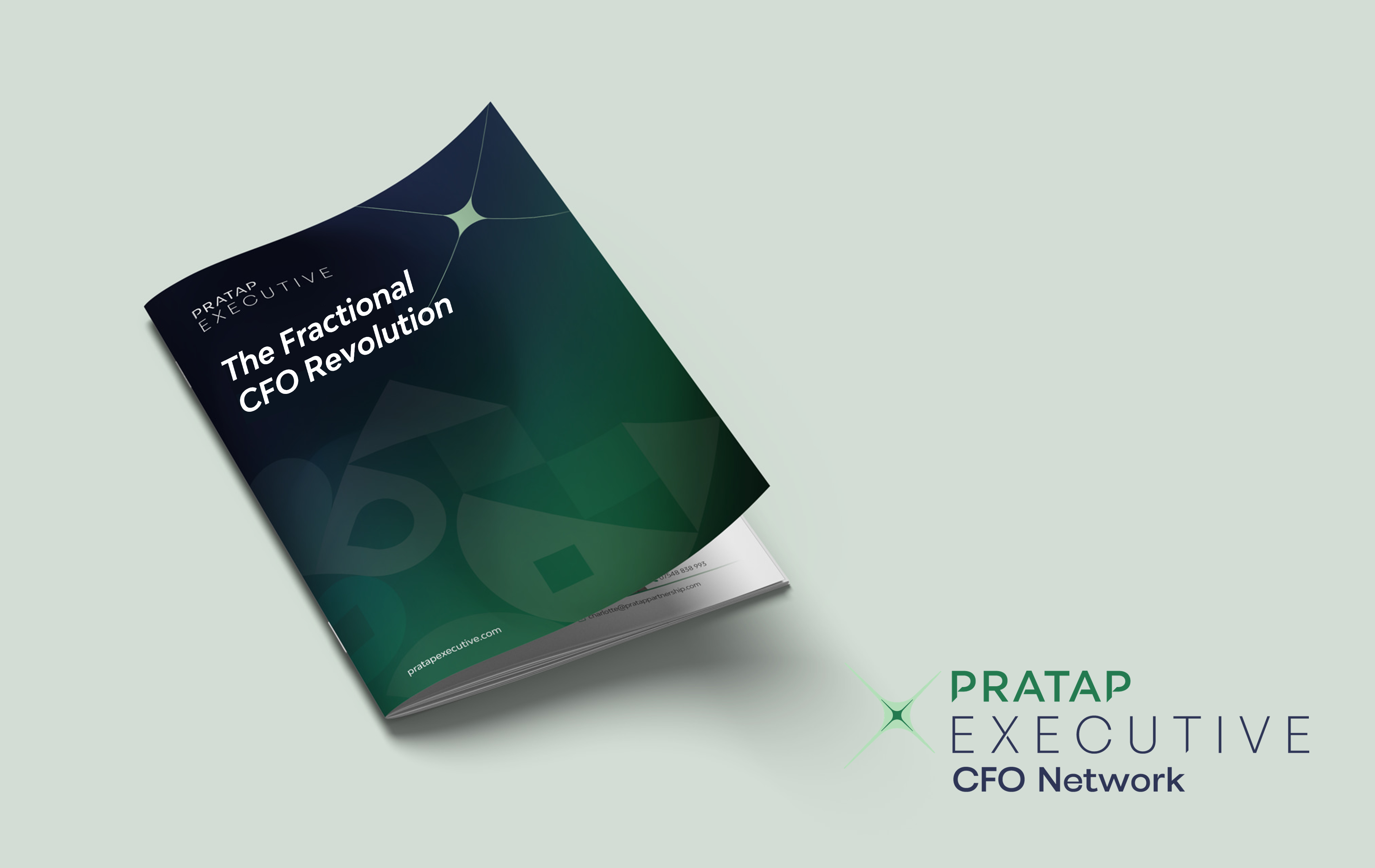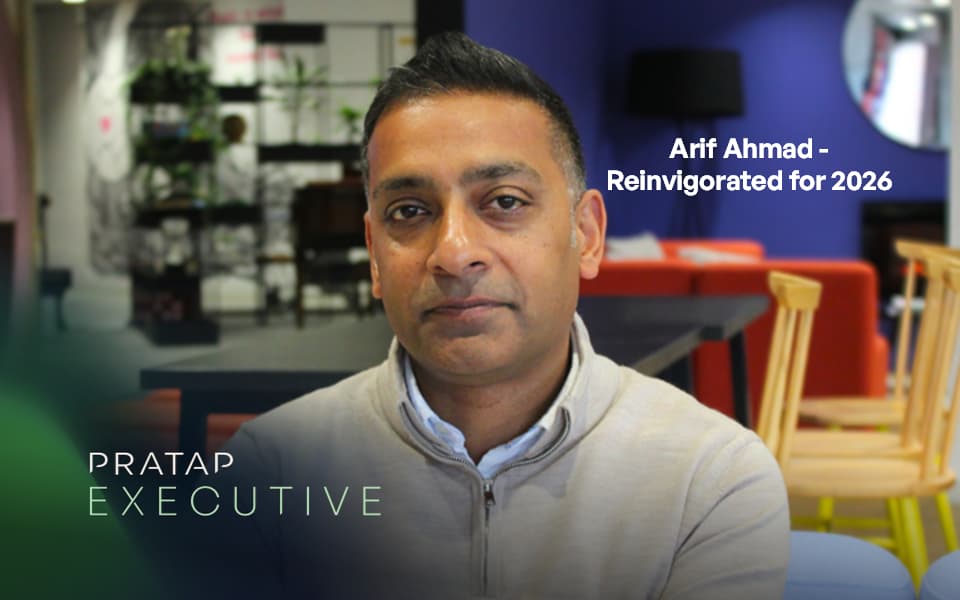Fractional CFOs – Explaining the Benefits and Opportunities for Finance Leaders
Our latest article highlights the rise of fractional CFOs, exploring their benefits, such as flexibility, diverse experiences, and cost-effective strategic leadership, through insights from experienced professionals.
Fractional CFOs – Explaining the Benefits and Opportunities for Finance Leaders
Our latest article highlights the rise of fractional CFOs, exploring their benefits, such as flexibility, diverse experiences, and cost-effective strategic leadership, through insights from experienced professionals.

Over the past few weeks, we have explored the growth of the fractional CFO market in collaboration with Victoria Robson from Mercia Ventures. This series has delved into why fractional CFOs are becoming an integral part of the financial landscape and what this means for businesses and finance leaders alike.
Exploring the Evolution
In our first article with Victoria Robson, we examined the shift from “part-time CFO” to “fractional CFO,” exploring the transformative role of technology and the drivers behind the surging demand for these roles. Our second article focused on the increasing volume of fractional CFOs and the clear benefits they bring to businesses looking for strategic financial leadership without committing to a full-time hire. In our latest article, we will hear from two successful fractional CFO’s who have transitioned from traditional full-time roles.
Insights from the Field
The festive season has provided the perfect opportunity to dig deeper into why more finance leaders are embracing fractional roles. During Christmas lunches and networking events, we have spoken to advisers and CFOs about their experiences. The sentiment among full-time CFOs was overwhelmingly positive, ranging from curiosity about fractional work to firm plans to transition by 2025.
This also gave Victoria, Gillian McBride, Nicola Beach, and me a chance to enjoy a Christmas drink and reflect on the motivators driving this trend. Here are some of the key factors we discussed:
Flexibility and Work-Life Balance
While the idea of work-life balance is often touted as a key motivator, many fractional CFOs admit it’s more theoretical than practical. As one CFO quipped during a recent event, “I’m now working the equivalent of eight days a week across three roles”, though they added this with a smile! Two main factors contribute to this:
- High Demand: Once established, a strong reputation often leads to an influx of opportunities.
- Expanding Roles: What starts as a “two days per month” engagement often evolves into something more substantial as the CFO’s value becomes evident.
Variety of Work
Fractional CFOs enjoy the opportunity to engage with multiple businesses across diverse sectors, tackling a variety of challenges. This not only brings professional fulfilment, but also enhances their CVs by showcasing adaptability and a wide range of expertise.
High-Level Input in Short Doses
Fractional CFOs bring the best practices from leading world-class finance teams to smaller businesses. For early-stage SMEs, this input can be transformative, though it often comes with the challenge of working within limited timeframes.
Financial Rewards
The financial incentives for fractional CFOs are compelling. Strong candidates command high day rates and often negotiate bonuses and other performance-related incentives, making this an attractive career path.

We were delighted to spend some more time with Claire Race, a successful fractional CFO who has been operating across Yorkshire for the past five years.
Why did you move into a fractional CFO career?
I had prioritised my traditional career over starting a family and after the birth of my first son, I knew I didn’t want to return to full-time employment after maternity leave. The vacancies for a one to three day a week permanent FD were simply not available. Portfolio/Fractional FDs were not so common six years ago, but after being introduced to the concept it appealed, enabling me to still operate at the senior finance level I had been performing at, yet also have the flexibility to look after my young family.
What experiences helped you to build the foundations for your fractional career?
After gaining my CIMA qualification and an MBA, I was fortunate to work in a variety of corporate and family-owned SMEs and at a senior finance level. This meant I had the credentials to market myself as someone who could really add value to a broad sector of businesses. Experience and success at raising finance, bridging the gap between the Board/business, and establishing and driving strategy for efficiency or growth have been invaluable tools I learnt throughout my pre-fractional time which I apply to the clients I work with.
What are the headline benefits?
From a personal perspective, I am able to take my children to school and collect them as I can set my own working hours. I even get to go out for the odd breakfasts or lunch with friends and my husband, and sometimes ride my horse during daylight which was always unheard of in winter! From a business perspective, I am proud of the differences I have made to the financial performance and employee engagement within my clients. I’ve even added to my skill set with Merger & Acquisition experience. The positive feedback received from clients and being described as “the missing piece of the puzzle” and “trusted finance partner” are certainly the icing on the cake! I have found this career change to be a most rewarding and satisfying one, so much so that it would not be an easy decision to move back into a permanent CFO role.

Victoria also spoke to Julie Richings, who joined Mercia portfolio company Pi Datametrics eight months ago, having made the transition from full time to fractional CFO roles in early 2024.
Having transitioned from a full-time CFO role to that of a plural CFO, what was the attraction and the benefits of pursuing the fractional CFO route?
Initially, the main attraction for me was the flexibility that this option offered. My children are grown up but I wanted to be in a position to manage my diary more flexibly so I could be around for my parents and in-laws. This has worked really well and been a major benefit to all of us and to the companies too in some respects.
When considering the work, I have really enjoyed the variety of working with different companies in different industries. Working alongside entrepreneurial CEOs at different stages of the business lifecycle has provided the opportunity to learn new skills and build new relationships, which has been an added bonus.
What are the extra skills you can bring to the business as a fractional CFO?
Having been an FD / CFO for a considerable time means that I have experience of many different scenarios in business and have built up a good network of contacts that can assist at different times. Evaluating the systems in place to ensure that there is a stable, reliable platform in place to produce the regular management information is a key task at the outset of any assignment. Being able to switch between diving into the detail and seeing the bigger picture and offering strategic input is one of the key skills that a fractional CFO can offer.
What is the impact and benefit on cost?
Obviously, having a fractional CFO means that the company has access to an important Senior team member at a fraction of the cost. Being able to dial this up and down in accordance with the needs of the business is a key attraction to the business.
From your experience how has technology and its continued evolvement supported the Fractional model?
Working within the SME and startup sector, I think the array of software products available to this sector at very reasonable price points now ensures that they can have access to the same level of reporting and efficiencies that are available to larger corporates. This certainly supports the ease with which the fractional CFO can provide value. Additionally, the ease with which remote working is achievable and accepted now means that the fractional model is a more effective and realistic option for many companies and individuals.
With the demand for fractional CFO’s rising, and the many personal benefits the route brings, it’s no surprise that many finance leaders are choosing fractional opportunities.







.jpg)
.jpg)


